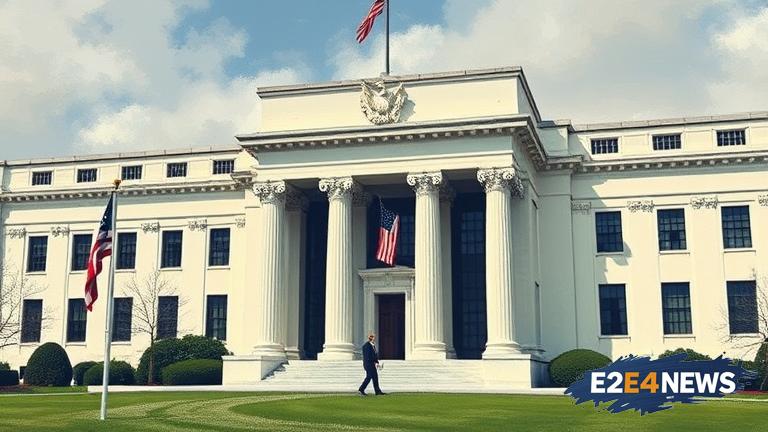The Federal Reserve, the central banking system of the United States, has been at the center of attention lately due to President Trump’s criticisms and threats to remove its officials. One of the officials in question is Lisa Cook, a newly appointed member of the Federal Reserve Board. The President’s dissatisfaction with the Fed’s monetary policy decisions has led to speculation about the possibility of removing its officials. However, the legal premise for such actions is complex and rooted in the Federal Reserve’s structure and the laws governing its operations. The Federal Reserve is an independent agency, and its officials are appointed by the President and confirmed by the Senate for staggered 14-year terms. This independence is designed to shield the Fed from political pressures, allowing it to make decisions based on economic data rather than political considerations. The law governing the removal of Federal Reserve officials is clear: members of the Board of Governors can be removed by the President for cause, which is typically understood to mean a serious breach of duty or misconduct. The courts have generally upheld this interpretation, emphasizing that removal for policy disagreements is not a valid cause. President Trump’s threats to remove Federal Reserve officials, therefore, raise concerns about the potential for political interference in the central bank’s operations. The independence of the Federal Reserve is crucial for maintaining the stability of the financial system and ensuring that monetary policy decisions are made in the best interest of the economy, rather than for political gain. The possibility of removing officials like Lisa Cook for policy disagreements undermines this independence and could have significant implications for the economy. The legal premise for removing Federal Reserve officials is designed to protect the Fed’s independence and ensure that it can operate without fear of political reprisal. The Federal Reserve Act of 1913, which established the central bank, grants the President the authority to remove members of the Board of Governors, but this authority is limited to cases where there is a legitimate cause for removal. The courts have consistently interpreted this provision to mean that removal must be based on a serious breach of duty or misconduct, rather than policy disagreements. In practice, this means that President Trump would need to demonstrate a clear and compelling reason for removing Lisa Cook or any other Federal Reserve official, rather than simply disagreeing with their policy decisions. The implications of removing Federal Reserve officials for policy disagreements are far-reaching and could have significant consequences for the economy. It could lead to a loss of confidence in the central bank and undermine its ability to effectively implement monetary policy. Furthermore, it could also lead to a destabilization of the financial system, as investors and markets become increasingly uncertain about the Fed’s ability to operate independently. The debate over the possibility of removing Federal Reserve officials highlights the importance of the central bank’s independence and the need to protect it from political interference. It also underscores the need for clear and consistent communication from the Fed about its policy decisions and the rationale behind them. In conclusion, while President Trump has the authority to remove Federal Reserve officials, the legal premise for such actions is complex and limited to cases where there is a legitimate cause for removal. The independence of the Federal Reserve is crucial for maintaining the stability of the financial system, and any attempts to remove its officials for policy disagreements could have significant implications for the economy. The Federal Reserve must be allowed to operate independently, free from political pressures, in order to effectively implement monetary policy and maintain the stability of the financial system. The possibility of removing Federal Reserve officials for policy disagreements is a serious concern that must be addressed through clear and consistent communication from the Fed and a commitment to protecting its independence. The legal premise for removing Federal Reserve officials is designed to protect the Fed’s independence, and any attempts to undermine this independence could have far-reaching consequences for the economy. The importance of the Federal Reserve’s independence cannot be overstated, and it is crucial that it is protected from political interference in order to maintain the stability of the financial system. The Federal Reserve’s ability to operate independently is essential for ensuring that monetary policy decisions are made in the best interest of the economy, rather than for political gain. The possibility of removing Federal Reserve officials for policy disagreements undermines this independence and could have significant implications for the economy. The legal premise for removing Federal Reserve officials is clear, and any attempts to remove them for policy disagreements would be a serious breach of the law. The Federal Reserve must be allowed to operate independently, free from political pressures, in order to effectively implement monetary policy and maintain the stability of the financial system.
